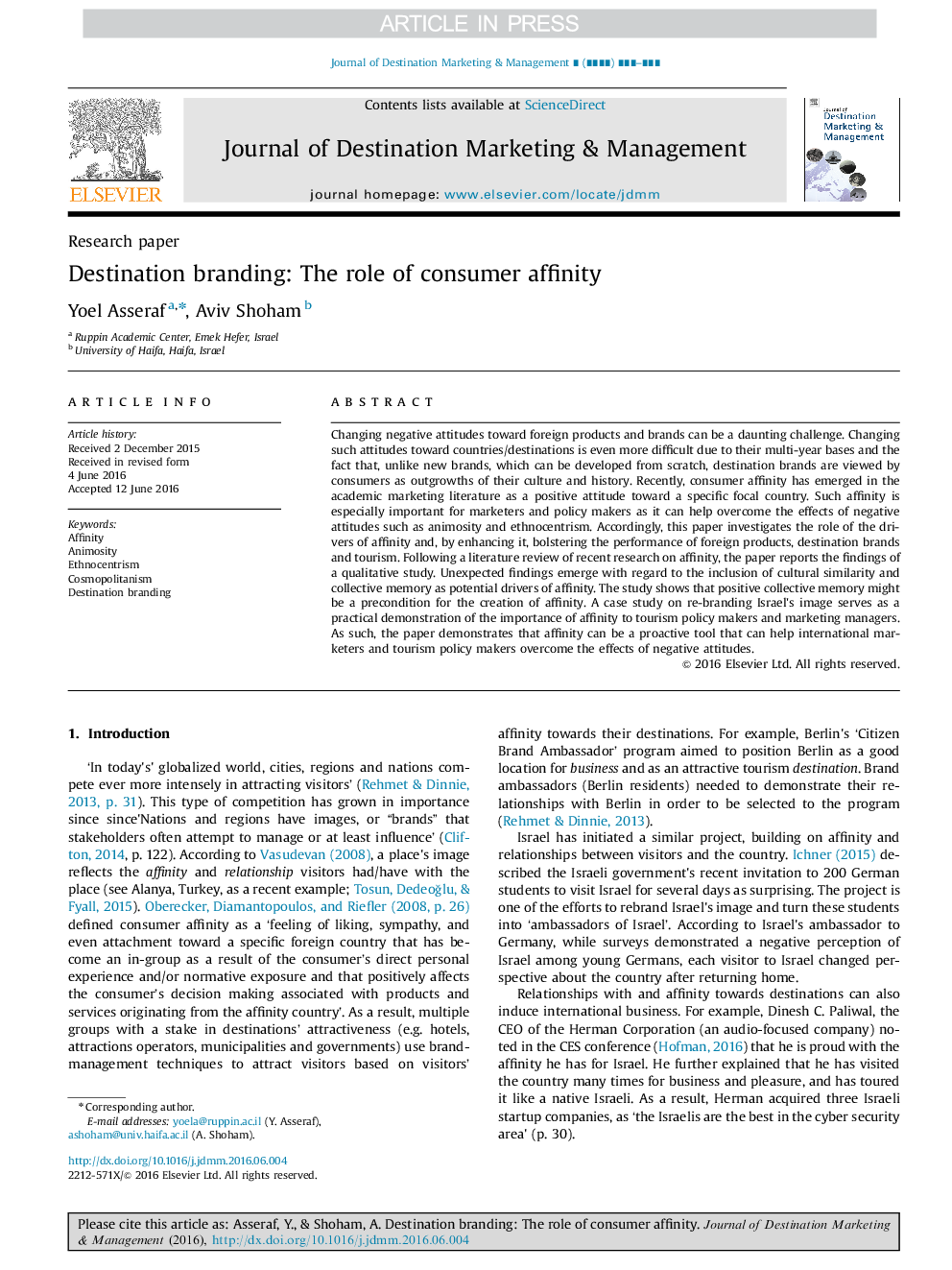ترجمه فارسی عنوان مقاله
نام تجاری مقصد: نقش تأثیر مصرف کننده
عنوان انگلیسی
Destination branding: The role of consumer affinity
| کد مقاله | سال انتشار | تعداد صفحات مقاله انگلیسی |
|---|---|---|
| 113852 | 2017 | 10 صفحه PDF |
منبع

Publisher : Elsevier - Science Direct (الزویر - ساینس دایرکت)
Journal : Journal of Destination Marketing & Management, Volume 6, Issue 4, December 2017, Pages 375-384
ترجمه چکیده
تغییر نگرش منفی نسبت به محصولات و مارک های خارجی می تواند یک چالش دشوار باشد. تغییر چنین نگرش نسبت به کشورهای / مقصد حتی به دلیل پایگاه های چند ساله خود دشوارتر و این واقعیت است که بر خلاف مارک های جدید که می توانند از ابتدا توسعه یابند، مارک های مقصد توسط مصرف کنندگان به عنوان رشد رشد فرهنگ و تاریخ خود مشاهده می شوند. اخیرا، ارتباطات مصرف کننده در ادبیات بازاریابی دانشگاهی به مثابه نگرش مثبت نسبت به یک کشور کانونی مشخص ظاهر شده است. چنین رابطه ای به ویژه برای بازاریابان و سیاست گذاران اهمیت دارد، زیرا می تواند به غلبه بر تأثیرات نگرش های منفی مانند خصومت و قوم گرایی برسد. بر این اساس، این مقاله به بررسی نقش رانندگان وابستگی و افزایش آن، تقویت عملکرد محصولات خارجی، مارک های مقصد و گردشگری می پردازد. به دنبال بررسی ادبیات تحقیق اخیر درباره میل جنسی، این مقاله نتایج یافته های یک مطالعه کیفی را گزارش می کند. یافته های غیرمنتظره با توجه به شمولیت شباهت های فرهنگی و حافظه جمعی به عنوان محرک های بالقوه روابط ایجاد می شود. مطالعه نشان می دهد که حافظه جمعی مثبت می تواند پیش شرط ایجاد ارتباط باشد. یک مطالعه موردی در مورد بازنویسی تصویر اسرائیل به عنوان یک تظاهرات عملی در مورد اهمیت میل به سیاستگذاران گردشگری و مدیران بازاریابی است. به همین ترتیب، مقاله نشان می دهد که میل جنسی می تواند یک ابزار پیشگیرانه باشد که می تواند به بازاریابان بین المللی و سیاست گذاران گردشگری کمک کند تا بر تاثیر نگرش های منفی غلبه کنند.

